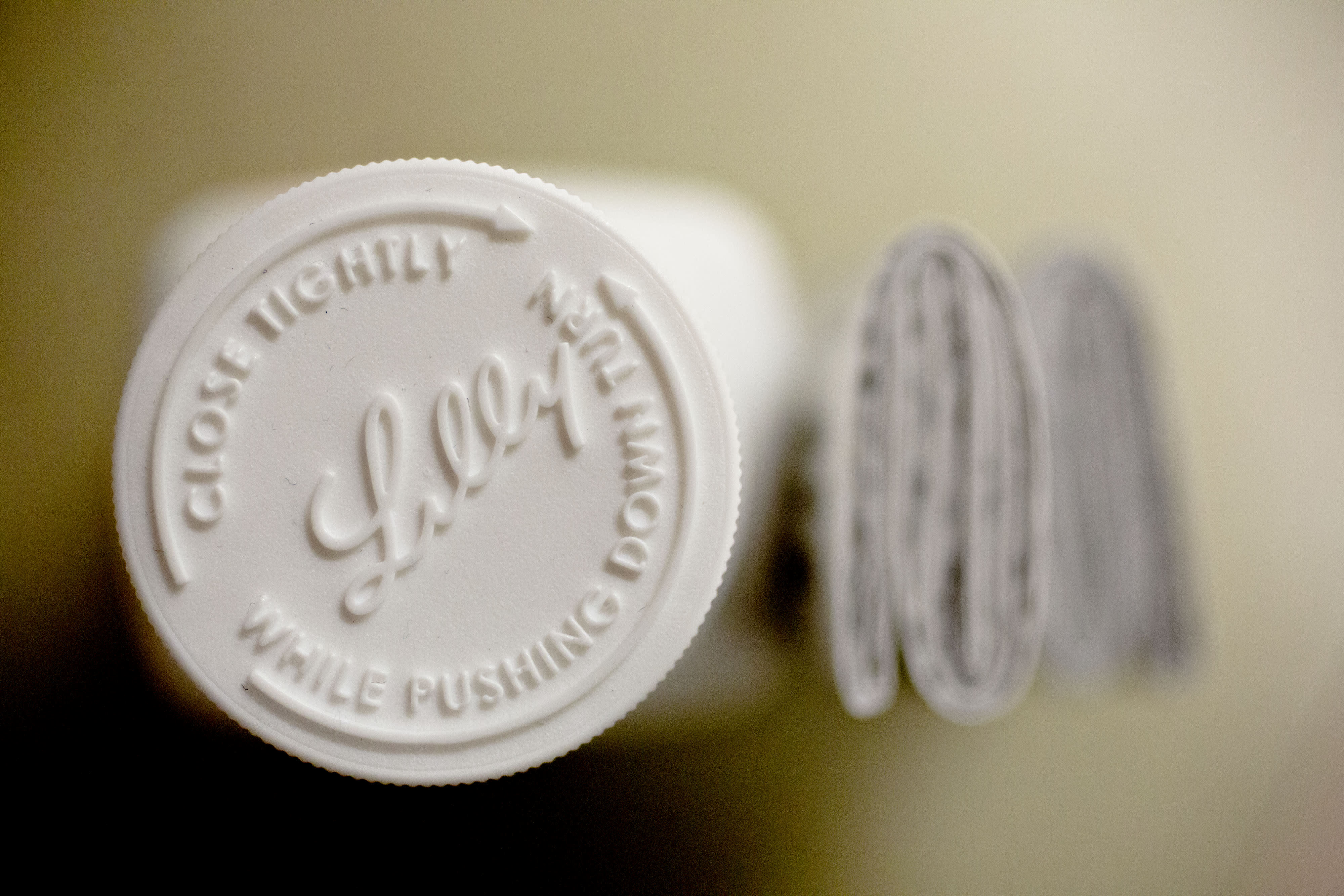An Eli Lilly & Co. logo is seen on the cap of a pill bottle in this arranged photograph at a pharmacy in Princeton, Illinois.
Daniel Acker | Bloomberg | Getty Images
Eli Lilly on Tuesday forecast a higher-than-expected profit for 2020, citing growing demand for its medicines including diabetes drug Trulicity and psoriatic arthritis treatment Taltz.
The drugmaker said it expects earnings per share between $6.70 and $6.80 on an adjusted basis for the next year. Analysts were expecting a profit of $6.63 per share, according to Refinitiv IBES data.
Lilly has been banking on drugs such as Trulicity and Taltz as it faces competition from cheap generic versions of its older medicines. However, sales from its newer drugs have been rocky in the last few quarters.
Trulicity sales have been crimped by high rebates that drugmakers pay to middlemen, such as pharmacy benefit managers, in order to make sure patients have access to their products.
Lilly sees the possibility for two product approvals and up to three new launches in 2020.
For fiscal year 2020, the company forecast sales between $23.60 billion and $24.10 billion. Analysts were expecting sales of $23.52 billion for the year.
The company’s Chief Executive Officer David Ricks said Lilly is expanding its arsenal of medicines focused on diabetes, oncology, immunology and neuroscience.
The drugmaker on Tuesday also cut its forecast for 2019 profit by 2 cents to a range of $8.57 to $8.67 per share, due to a charge related to the repurchase of debt and additional charges from global cost reduction initiatives.
